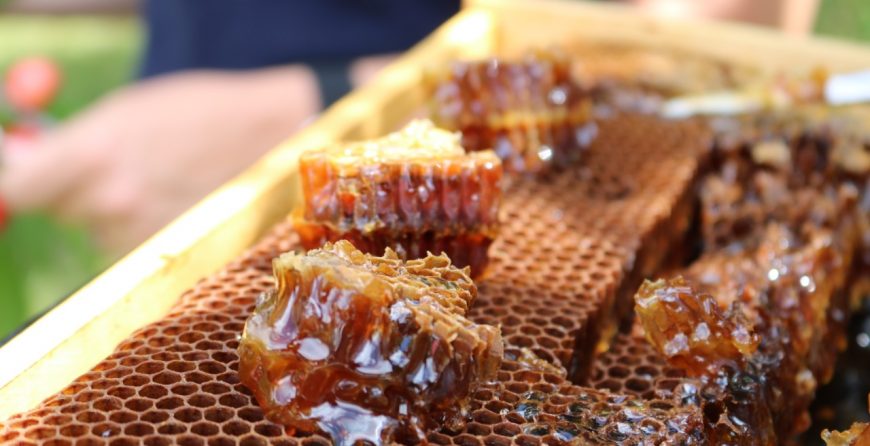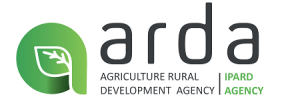This is the story of Bislim Zenelaj from the village of Markaj in Tropoja, who has dedicated his life to bees for over 30 years. What initially started as a passion has now become his business. “If I don’t see them at least an hour a day, something is missing from my life,” says Bislim.
Around 80% of the honey produced by the beekeeper comes from chestnut flowers, and the rest is from various other flowers. Chestnut honey is highly sought after by consumers due to its healing properties and is sold out completely by July.
During the inspection of Bislim’s bee park, Frida Krifca, the director of ARDA, advised him that besides the funding he receives for each beehive through the National Scheme, he could also apply for a honey processing or packaging line. “Having a packaging line would be great as I need it very much,” said Bislim.
“With a minimum investment of 10,000 euros, if you have 10,000 euros to invest in this idea or line, you can receive support from ARDA, through Measure No. 7 of the IPARD program, up to 65% financing as a grant. In the next call of the IPARD program, which we will open in the fall, you can apply with a business plan. Fill out an application form and seek assistance from ARDA,” informed Krifca the beekeeper.
Bislim Zenelaj was funded by ARDA through the National Scheme in 2018-2019, with an amount of 216,000 new lek. In 2020, he applied for 150 beehives, and these fundings contribute to strengthening and specializing his honey production and trade activities.
The village of Markaj has a large chestnut forest, providing significant financial income to the area. It covers an area of 2400 hectares, and during the season, around 7000 beehives are brought from several regions. Around 80 beekeepers in the Tropoja region have applied for financial support.


